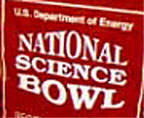|
Bill Nye Ð Science
Educator
|
 |
"To
anyone who wants to create anything, I always say that the design,
the beginning of any project, is the place to spend the most resources." |
 |
| |
|
|
|
| |
How were you motivated to become an
immunologist? |
| |
I
got interested in elementary science education, while I was working
on the radio in Seattle. Everyday, I would answer listener questions
about science. I called myself the Science Guy, as you might infer.
I was fascinated by how little the general public seems to know
about the world around us.
After
the space shuttle Challenger blew up, I quit my engineering job.
I did not work on the space program, but I could tell that I was
working for people with the same management style as those, who
had let it happen. I set to work writing and performing comedy full
time.
In
the winter of 1987 I did my first appearance on a local comedy show
as the Science Guy. It was a hit, and I knew I wanted to be the
next Mr. Wizard.
|
|
 |
| |
|
|
|
| |
What can you share about your creative process? |
| |
 |
|
To
anyone who wants to create anything, I always say that the design,
the beginning of any project, is the place to spend the most resources.
If you have the greatest auto body painters in the world, and they
get a Ford Pinto, the best they can possibly do is a Ford Pinto.
The more time you spend in design, in the beginning, the better.
|
|
| |
|
|
|
| |
What ideas do you have for a future human community on Mars?
|
| |
Putting a village on Mars by the year 2030 seems optimistic, or
too soon. While it might be technologically possible, even right
now, it is a very different thing to have the political will and
economic means set aside to do so. Let's say a village on Mars by
2070, because of the time it takes for citizens to get ready to
commit their resources to such a wild undertaking.
The villagers will need ways to reuse and find water. I hope they
don't start any non-native species growing there, unless they satisfy
us back here on Earth that Mars is sterile with absolutely no sign
of life. If we do find living things there, everyone in the world
must be made of aware of them. And, we must leave planet alone.
No matter what happens, I look forward to exploring Mars. In so
many ways, it's much like our Earth. In so many ways, it's different.
The more we learn about Mars, the more we'll learn about our Earth
and ourselves.
|
|
 |
|




